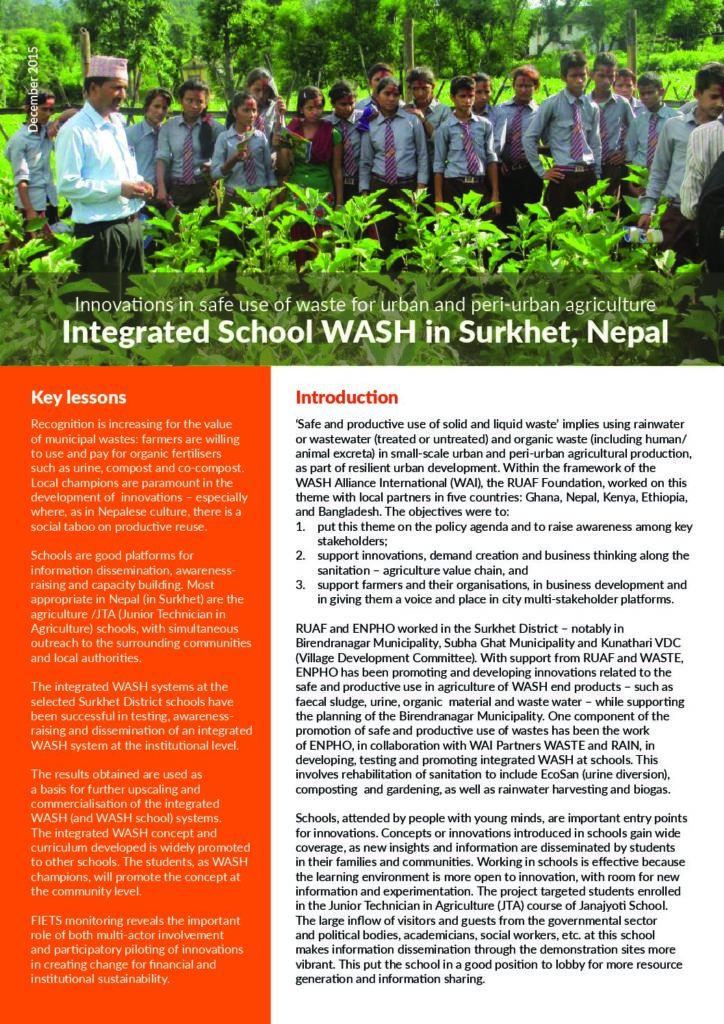This brief on innovations in safe use of waste for urban and peri-urban agriculture in School WASH (water, sanitation and hygiene) in Surkhet, Nepal is produced by ENPHO (Environment and Public Health Organisation) and the RUAF Foundation, with support from WASTE and as members of the WASH Alliance International, with funding from the Dutch Government.
Key lessons
- Recognition is increasing for the value of municipal wastes: farmers are willing to use and pay for organic fertilisers such as urine, compost and co-compost. Local champions are paramount in the
development of innovations – especially where, as in Nepalese culture, there is a social taboo on productive reuse. - Schools are good platforms for information dissemination, awareness raising and capacity building. Most appropriate in Nepal (in Surkhet) are the agriculture /JTA (Junior Technician in
Agriculture) schools, with simultaneous outreach to the surrounding communities and local authorities. - The integrated WASH systems at the selected Surkhet District schools have been successful in testing, awareness raising and dissemination of an integrated WASH system at the institutional level.
- The results obtained are used as a basis for further upscaling and commercialisation of the integrated WASH (and WASH school) systems. The integrated WASH concept and curriculum developed is widely promoted to other schools. The students, as WASH champions, will promote the concept at the community level.
- FIETS monitoring reveals the important role of both multi-actor involvement and participatory piloting of innovations in creating change for financial and institutional sustainability.

